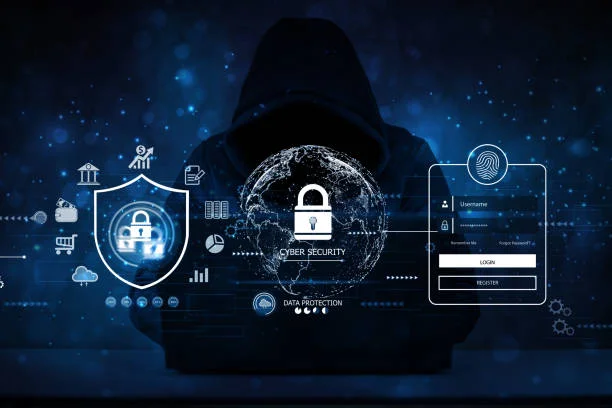When you look for a career in IT security, the chances are high of getting words like ethical hacking training and cybersecurity courses. While vital in their own right when it comes to providing defences against cyber threats, they delve into different elements of digital defence. Knowing the distinctions between ethical hacking and cybersecurity can help you make the appropriate career move and determine which one will offer relevant training to fulfil your goals. In this post, we will try to understand these two branches of data science, their roles and a list of comprehensive global certifications for which you could enrol in courses offered by Simplilearn in order to fulfil the gap of relevant skills that are required from the data scientists.
What Is Ethical Hacking?
Ethical hacking(simply known as white-hat hacking) is the practice of performing penetration testing on systems, networks or applications to find security vulnerabilities before cyber-criminals can exploit them. Ethical hacking professionals are also known as ethical hackers or penetration testers. They aim at identifying security vulnerabilities before attackers do, and helping organisations improve their defences.
If you wish to be an ethical hacker, then getting trained for a certified course in ethical hacking is crucial. These courses teach you different hacking methods, tools, and techniques in a controlled legal environment. You will understand how to pentest or do VA (Vulnerability Assessment) & Security Evaluation for your digital assets.
Many ethical hackers are permitted to hack into systems, also referred to by the in-vogue phrase of offensive hacking, within strict boundaries where they will not cross and misuse their skills. This is important in a world where cyberattacks are exponentially growing more and more sophisticated.
Unlock fresh insights—click to explore our most engaging related post today.
What Is Cybersecurity?
It is a field much larger in scope than security and focuses on how to protect systems, networks, and data from theft or damage through unauthorized access. Cybersecurity, in contrast to ethical hacking, is related not only to attacking systems but also prevention and detection of cyber threats and response against them.
In cybersecurity, professionals create security policies, monitor networks for abnormal activity, configure firewalls and oversee incident response plans. This includes many different functions, such as security analysts, security engineers, and CISOs (chief information security officers).
For getting started in this field, a plethora of cybersecurity courses that cover fundamental topics such as cryptography, network security, risk management and compliance are offered. These cover all the strategies and expertise required for safeguarding digital infrastructure.
Reasons you should opt for an Ethical Hacking Course
Hacking is a very specific skill in demand as companies are spending billions of dollars on enhanced security. It’s a kind of privilege for ethical hackers to think like an attacker and predict the coming threats and exploits. This field provides the kind of work that is both challenging and fulfilling — as well as competitive compensation.
Simplilearn provides world-class ethical hacking training with different levels of penetration testing from basic to advanced. These courses contain practical labs, case scenarios grounded in reality, and are crafted by considering certifications such as CEH. Such training helps you recognise and control risks responsibly and with a good conscience.
Reasons to Opt for Cybersecurity Courses
If your primary interest is a larger IT security role today encompassing risk management, policy enforcement, and threat monitoring, then the right training would still be in one of the branches of cybersecurity. Cybersecurity professionals form the backbone of the defence mechanism in any organisation, ranging from securing networks to managing an incident.
Its cybersecurity courses, then again, offer a wide syllabus that complies with such benchmarks as CISSP, CompTIA Security+, and CISM. From these courses, you can learn the proper foundation of security principles, network defence and governance.
Career Opportunities and Growth
Both ethical hacking and cybersecurity stand as complete career paths, walking together with multiple growth opportunities. Ethical hackers frequently grow their careers into more advanced security consulting, but cybersecurity professionals can ascend the levels of leadership to become security architects or CISOs.
As per industry estimates, cybersecurity is likely to add more than 30% jobs in the years to come on a backdrop of mounting cyber threats and regulatory compliance. As companies have started looking for preventive security measures, ethical hacking roles have also expanded.
Ethical Hacking vs Cyber Security: Which one to select
Offensive vs defensive security: Do you like simulating attacks to break things (offensive) or build systems in such a manner that they remain safe?
Technical skill: Ethical hacking requires great in-depth technical knowledge of various hacking techniques, while cybersecurity needs a more general understanding of policies and securities-frameworks.
Career goals: Ethical hacking roles tend to be highly specialised and technical-based, while cybersecurity encompasses various general as well as managerial positions.
Preference in training: it is about those course contents and certification paths that match your career blueprint.
Simplilearn — Learn cybersecurity with experts in this complete cybersecurity course.
From ethical hacking to training in cybersecurity, a range of flexible programs is available online with Simplilearn, designed by industry experts. When learning on their platform, you can be sure all of the information in their courses is up-to-date and current with modern security practices, as they are constantly updating course material to reflect the latest trends and threats.
Simplilearn also supports you in your hands-on lab practice, instructor-led training, and community support for learning the best reflect alongside guidance. Their certifications are globally recognised, giving an edge to your resume and job prospects.
Final Thoughts
Ethical hacking and cybersecurity today form two key pillars of modern IT security, albeit with different emphasis, methods and career paths. Get started today to start an Ethical hacking training or cybersecurity courses and get on a fast track for your career in a high-impact, growing industry with Simplilearn.
Discover hidden gems inside our featured posts crafted just for curious readers.







